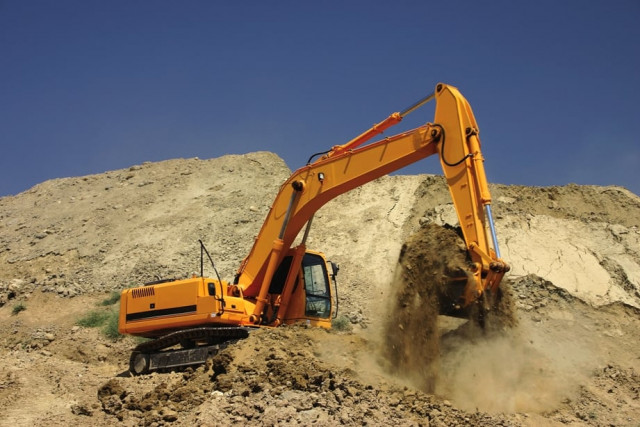Indian firms eye huge mining investment in Afghanistan
Indian firms are bidding billions of dollars for a contract to mine iron ore in a central district of the country.

A consortium led by state-run Steel Authority of India (SAIL) could invest up to $6 billion in the mine, railroads and a steel plant in a race with China to lock in raw materials for two of the world's fastest-growing economies.
The bid also signals India's intention to remain engaged in Afghanistan long after 2014, when US-led forces complete a pullout.
The contract for the Hajigak mines in Bamiyan province is potentially the single biggest foreign investment project in war-ravaged Afghanistan but it could be complicated by Pakistan.
"We will be guided by Afghanistan's national interests in arriving at a decision," said a government official after six bidders, two of them Indian, emerged for Hajigak this week.
"If it is an Indian company which wins it then so be it," the official said, dismissing concerns that deeper Indian involvement will stoke new tensions with Pakistan.
India is Afghanistan's biggest regional aid donor and sixth largest overall. It has pledged $2 billion in projects, from constructing a new parliament building to laying a highway to Iran, to project Indian "soft power".
Preferred bidder
For Hajigak, bids to mine four blocks of an estimated reserve of 2 billion tonnes were received from the consortium led SAIL, U.S.-based ACATCO LLC, Iran's Behin-Sanate Diba and Gol-e-Gohar Iron Ore, Canada's Kilo Goldmines and Corporate Ispat Alloys, another Indian firm.
Afghan officials will name a preferred bidder after a 45-day evaluation process and the SAIL-led consortium is seen as having the best chance.
"India is a strong contender without doubt," the government official said, adding that the bidder's experience in mining, financial capacity and the royalty offered would be factors.
He also drew attention to President Hamid Karzai's position that countries which had helped Afghanistan in the past must be given priority in developing its resources.
While the United States is still seen as an occupying force despite pouring billions of dollars of aid into Afghanistan, India's lower-profile efforts, focused on key issues like roads, electricity and education, have won it goodwill.
But Indian interests have been frequent targets of attacks in the last decade.
The embassy in Kabul was hit by two bomb attacks in 2008 and 2009, killing 75 people and wounding hundreds. Indian engineers working on projects in Afghanistan have been kidnapped and hostels for Indian workers have been attacked.
There are some fears that an Indian-run mining concession could be a large, and tempting target.
But with an economy ravaged by more than three decades of war, Afghanistan's government is under tremendous pressure to ensure projects involving foreign investment flourish.
Protection
Jawad Omar, a spokesman in the mines ministry, said a 7,000-strong mine protection force is being raised to protect mine sites, including Hajigak.
So far, mainly Chinese and Indian companies have shown interest in mining Afghanistan's resources.
China's National Petroleum last week was chosen as a preferred bidder for an oil field in northern Afghanistan, taking the country a step closer to a second major deal after winning a $4 billion copper project in Logar province in 2007.
Global miners such as Rio Tinto and BHP Billiton have stayed away from Afghanistan because of security concerns but also because of high production costs especially in transporting deposits from the landlocked, mountainous country with few roads and little other infrastructure.
For India, a direct land route from Hajigak is out because it would involve travel through Pakistan
Other options include transporting the ore westward to the Iranian port of Chabahar which is connected by roads that Indian engineers have built. The ore can also be moved by slurry pipelines after turning it into slush, but that may involve Pakistan as well.
New Delhi seems to be banking on the fact that the overall security situation will improve in coming years.
"The fact is a lot of things can change from now till the time this reaches production stage which I understand is years away in this kind of operation," said an Indian diplomat in New Delhi.
Exploration at Hajigak is due to start next year and development of the mine will take four to five years. Then the infrastructure of road and rail networks which the developer has to build will take several more years.
"You are talking of 10 years at least before commercial production starts,' the diplomat said. "Hard to say what Afghanistan will look like three years from now, let alone 10 years."


















COMMENTS
Comments are moderated and generally will be posted if they are on-topic and not abusive.
For more information, please see our Comments FAQ